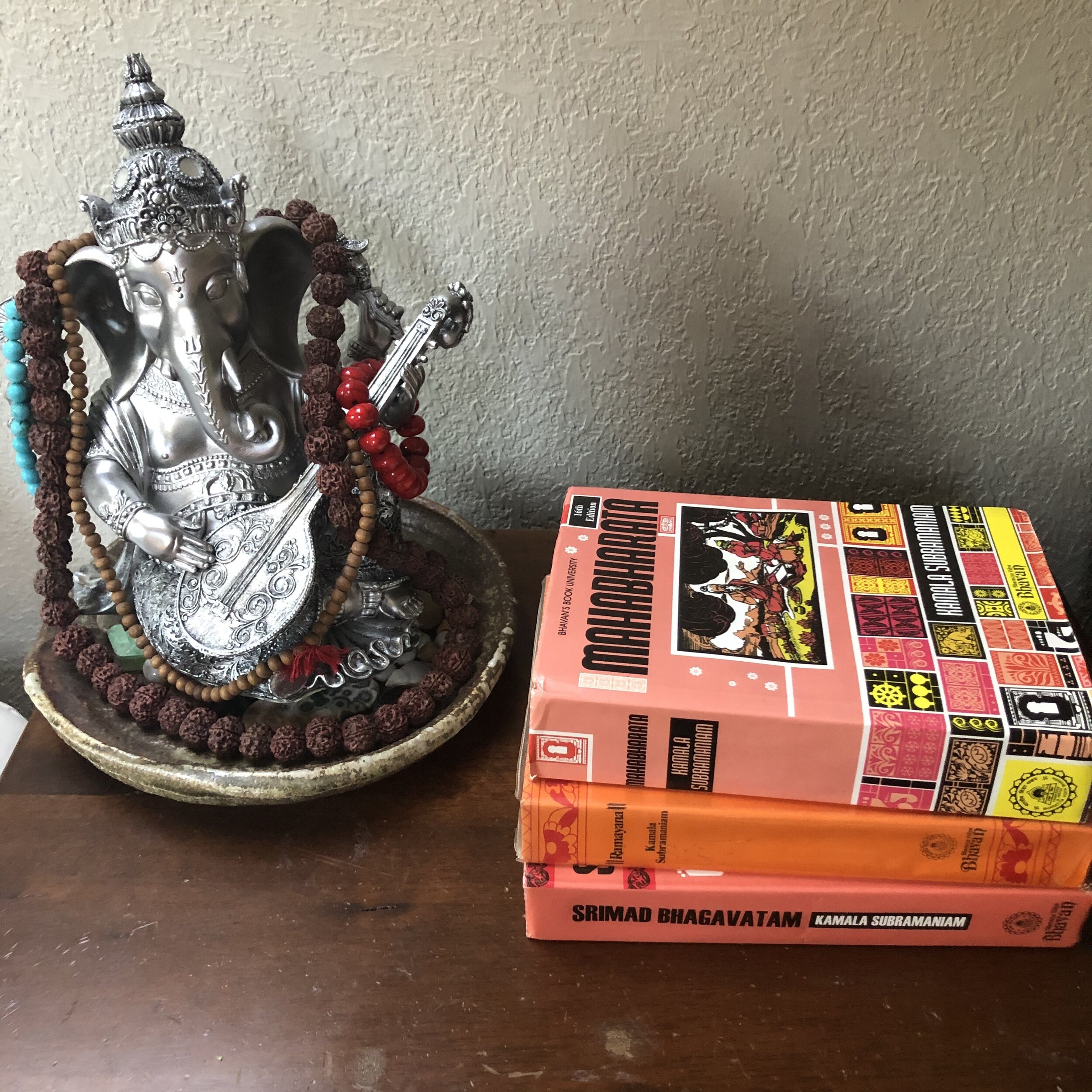The Yogic Diet
Eating is a discipline and is in accord with the principle of ahimsa or the reverence for all forms of life and the protection of nature’s resources. The yoga practitioner is very clear of the broader implications which their dietary choices have on their personal and collective environment. If the food that is taken is pure and has been obtained by sustainable and loving practices, then the mind has proper building materials for the development of a strong, subtle intellect and good memory while offering compassion, protection, and respect to all life.
The Four Locks & Keys: Cultivating Equanimity
Establishing ourselves within these four sublime states is not only a liberating way to live our lives, but it shows others of the possibility to live in an abundance of love, compassion, sympathetic joy, and equanimity and share these qualities with all beings, without exception and without favor.
The Yoga of Devotion
Bhakti-Yoga is the path of pure unconditional love, devotion and self-surrender. In the practice of Bhakti-yoga, the bhakta cultivates a relationship with the supreme Self and offers all of their thoughts, words and actions to the Divine. The universality of yoga allows each individual to approach the Divine as it suits their own temperament. Through the eyes of yoga, the Supreme is limitless, therefore the ways to approach the Supreme is also limitless.
Hatha Yoga
Yoga recognizes that we have multiple layers to our being beyond our tangible physical body. Through proper alignment of the physical body, we harmonize our subtle energy, mind and intelligence taking us a step further towards wholeness. Although yoga asana is a physical practice, its essence is spiritual as it seeks to penetrate to the core of our being.
The Yoga of Inner Action
The yoga of inner action is a radical practice as we are attempting to dismantle the very paradigm of duality which creates fear, conflict, injustice and oppression. This requires the willingness to stay with discomfort, cultivate clarity from self-study and letting go of the tendency to fight with life. Kriya yoga offers us the opportunity to live more skillfully in the present moment free from the coloring of conditioning. Nobody may see you, you may not receive any credit or recognition, but the practice of kirya yoga is a conscious act of service in the name of equity and peace for all.
Pratyahara: Moving Into Stillness
The practice of pratyahara rekindles our connection to the inner Self, bringing the gift of clarity that the happiness we experience from the objective world is simply a reflection of the pure and lasting joy which emanates from within our True self.
The Three Strands of Reality
By understanding the attributes of the gunas as they are expressed within us, we can respond and transform our inner state by cultivating specific and necessary lifestyle choices to live in harmony within our nature. Mindfulness of our everyday activities such as breathing, eating, sleeping, exercise, sensory input and desiring, is the key to our well-being.
The Three Bodies and The Five Koshas
The bodies and the koshas are like a series of doorways. As we unfold their mysteries, we uncover the key which unlocks the door to the higher Self.
The Laws of Causality & Cosmic Harmony
No longer deluded by the self-serving motivations of the limited self, we realize that the our life’s purpose is to perform actions in service of the welfare of all. We skillfully begin to make choices which align with our purpose and this, in turn, supports the fundamental law of the unity of life
The Fear of Letting Go
We spend much of our lives grasping and clinging, fooling ourselves that we can posses and hold on to people, things and experiences. When we do not consciously acknowledge the impermanence of everything which we interact with, we create future suffering for ourselves. Inevitably, the fluctuation of change disrupts our illusion of ownership and permanence when the person, thing or experience is lost. Because the fear of letting go runs so deep, it requires daily acknowledgment and practice to pry ourselves from its grip.
Attachment / Aversion
Our attachment to our likes and aversion to our dislikes rank as the third and fourth causes of our personal and collective suffering according to Patanjali’s Yoga Sutras. Most of the decisions which we make throughout our lives are influenced from the unconscious motivation to move towards that which pleases us and retract from that which displeases us. Because these two influences are hidden from our conscious mind, they subtly rule our decisions and shape our destiny.
The False Sense of Self-Identity
Asmita is the sense of “I-am-ness.” This false sense of self-idenity is the second of the five kleshas or afflictions and arises from mis-understanding or avidya. The identification as a separate self solidifies avidya and the two of these afflictions work together creating more confusion and conflict in our lives and in society.
The Root of Misconception
The first affliction, and the catalyst of the other four, is avidya or ignorance. Avidya is the mistake of identifying with our outer personality as the culmination of our being. This identification not only defines us, but it confines us as we mistakenly believe that it and the objective world is the source of our fulfillment.













